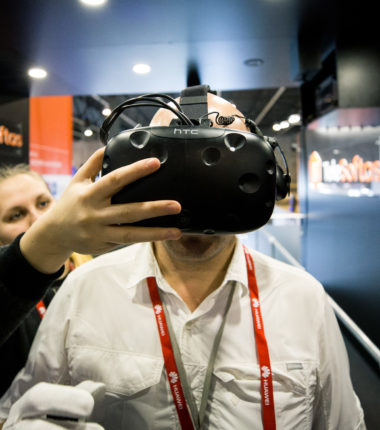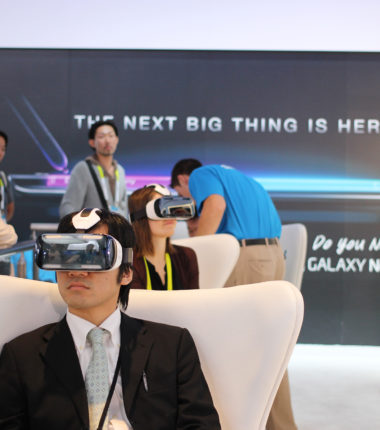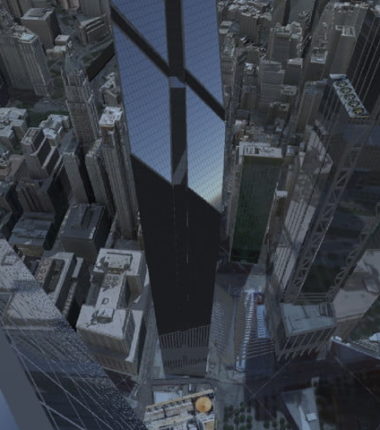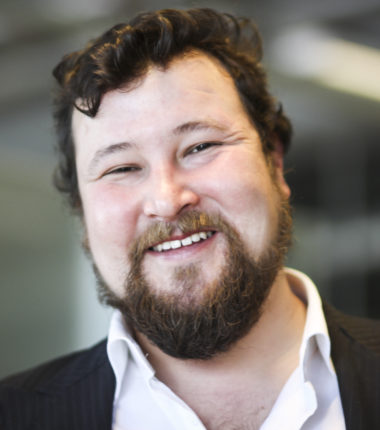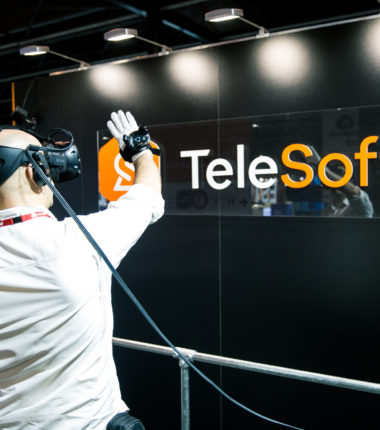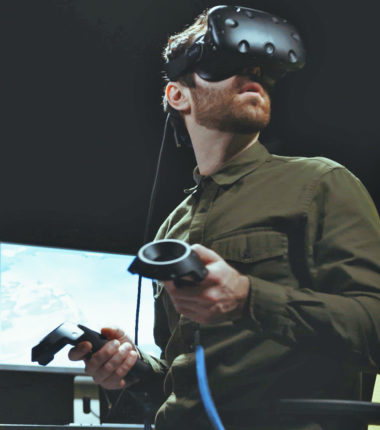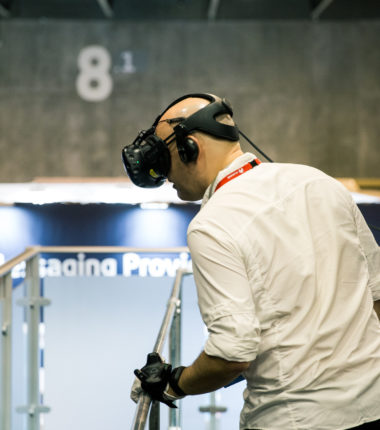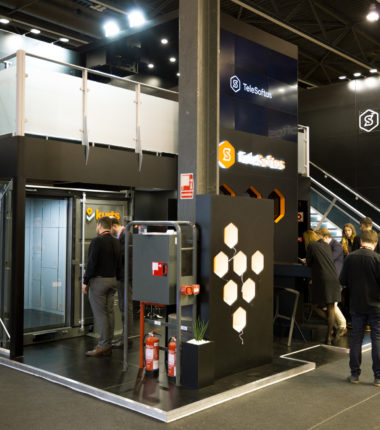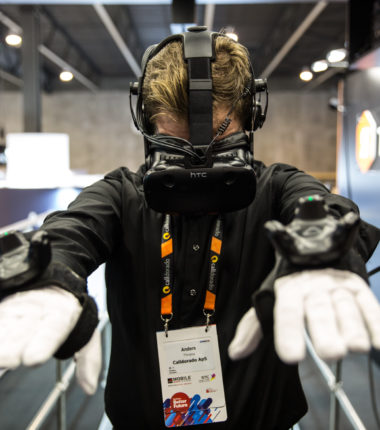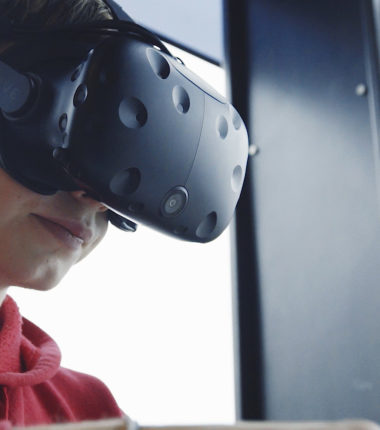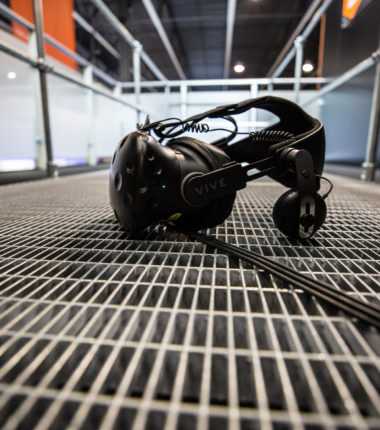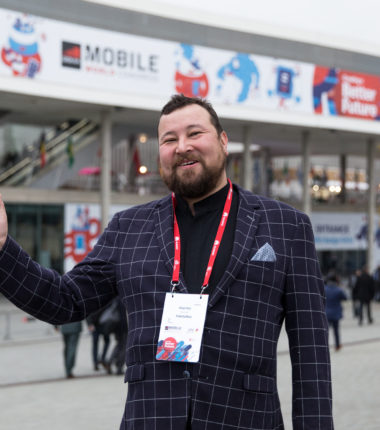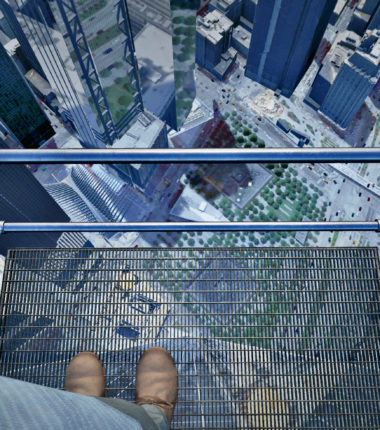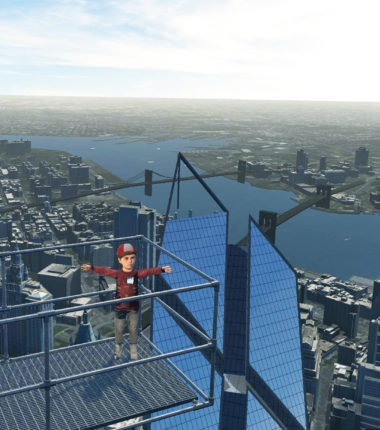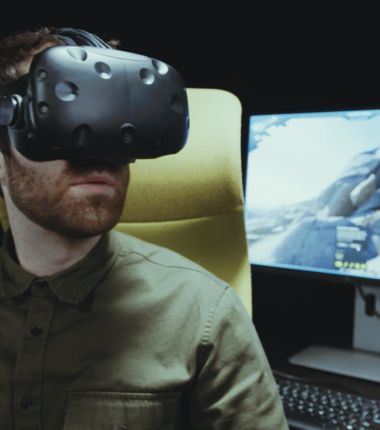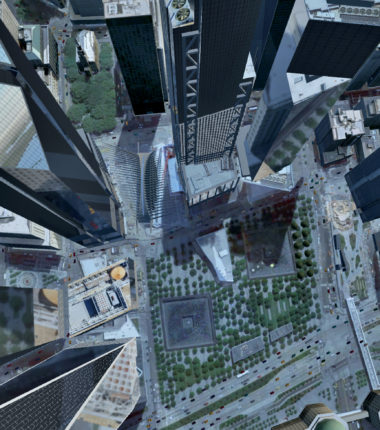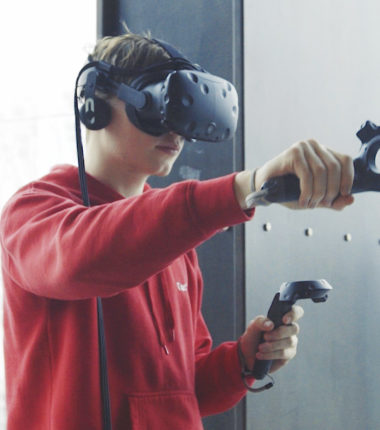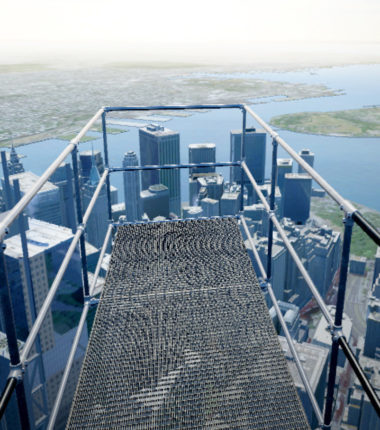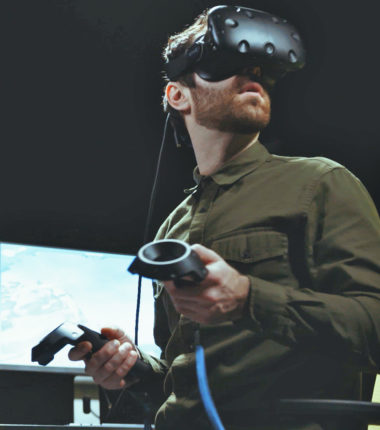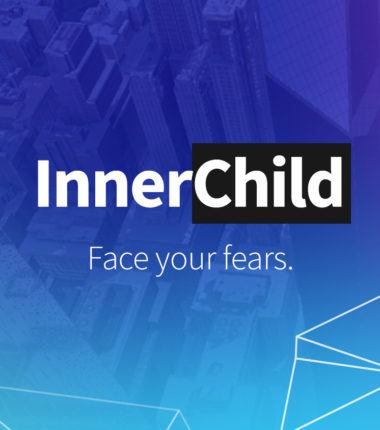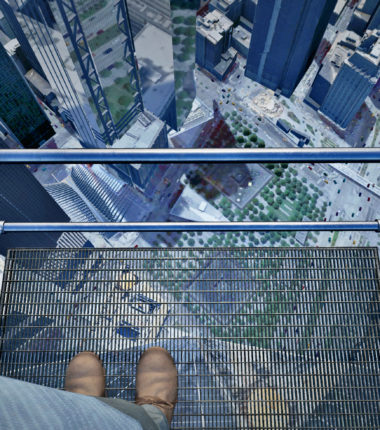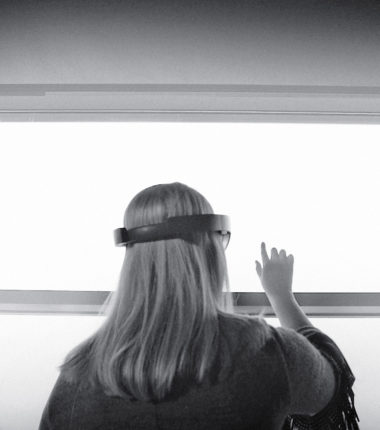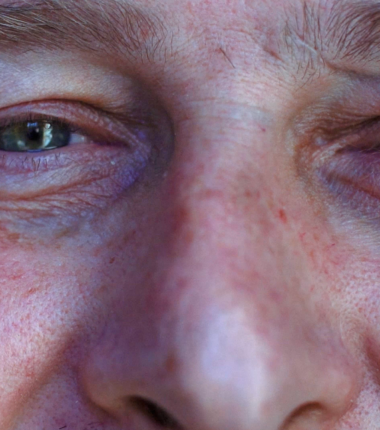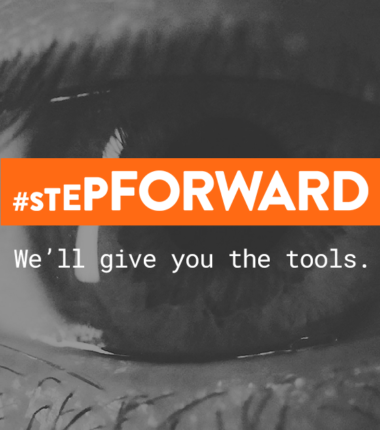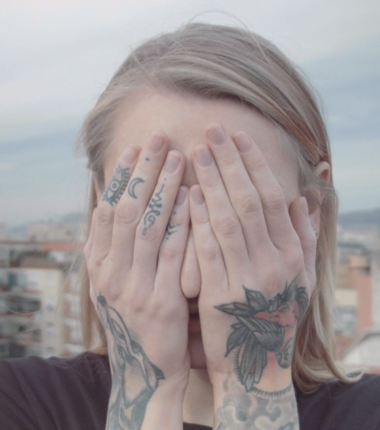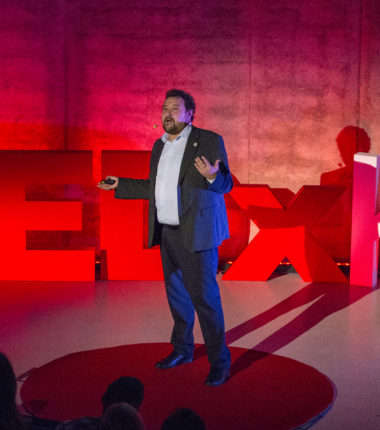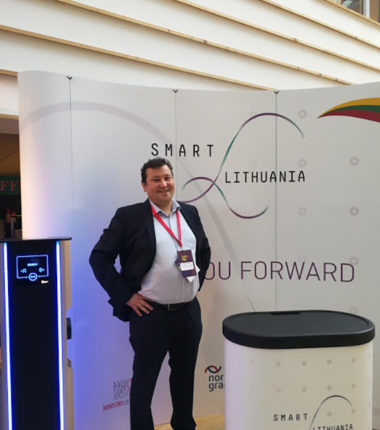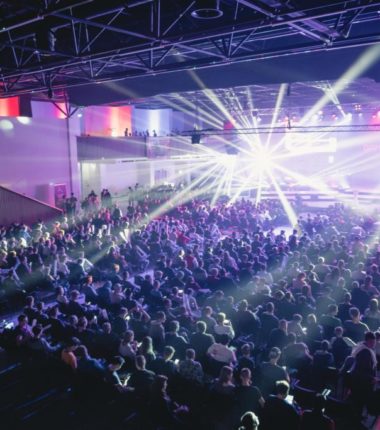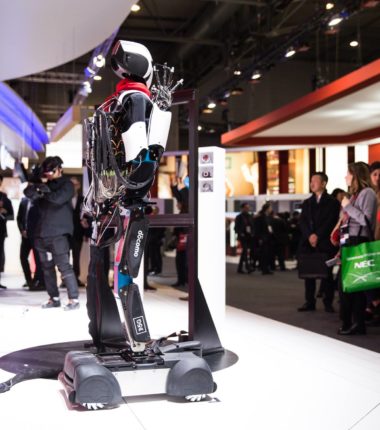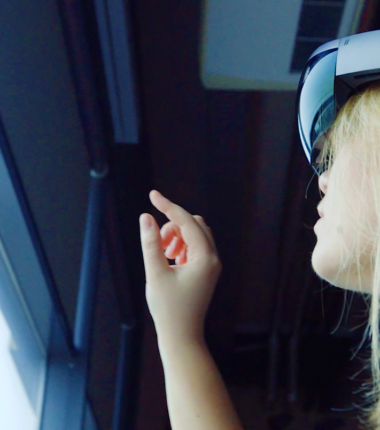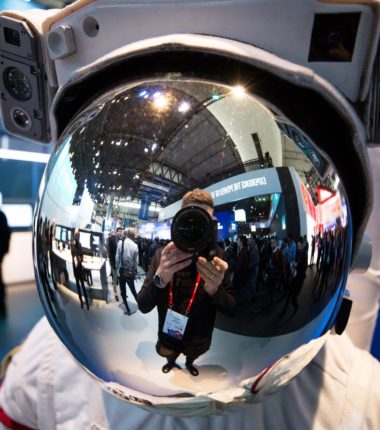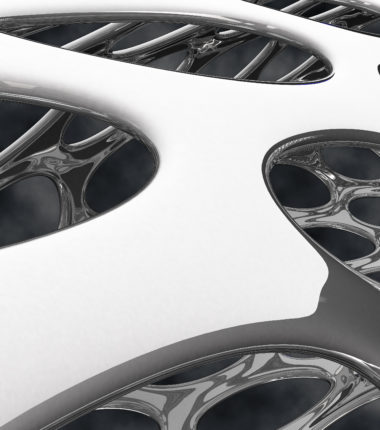is a campaign driven by TeleSoftas meant to call out businesses to take the lead and implement brave business ideas, adopting high-end digital technologies. Step forward is the needed inspiration. Step forward is a call to action. Because progress for business is progress for humanity. We have the tools and the knowledge. Let's join our forces. And make the next brave idea a reality.
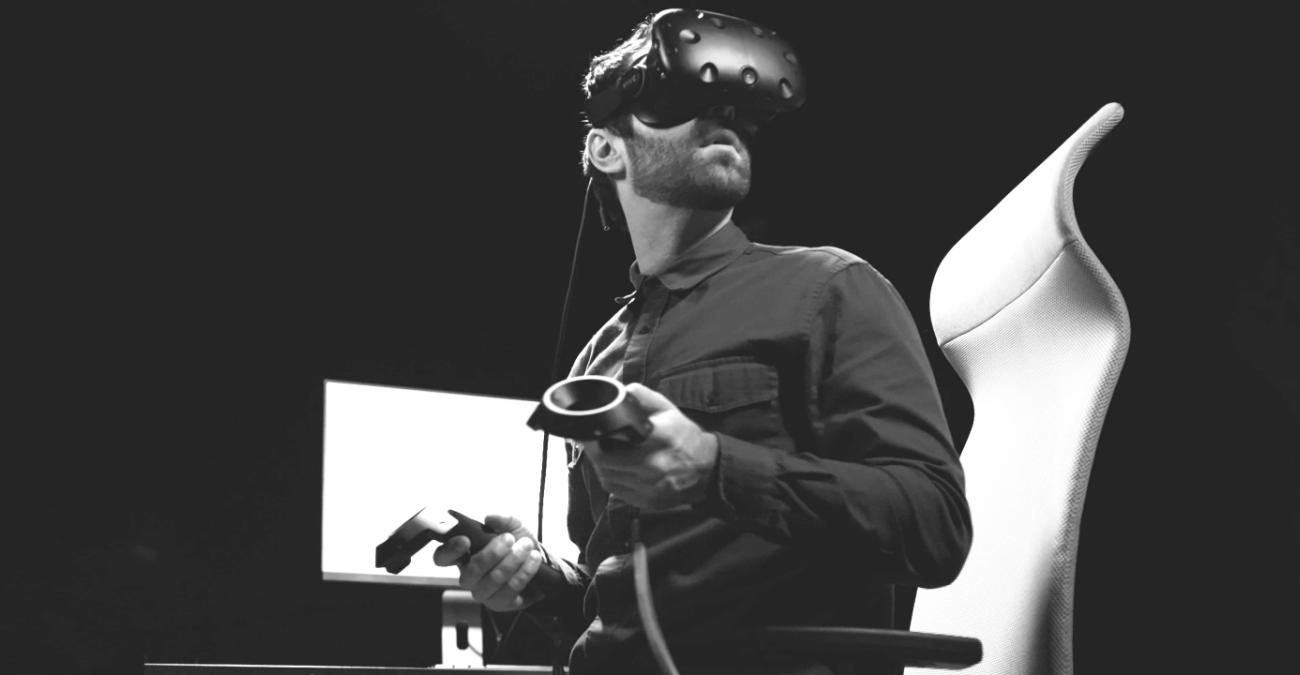
Global Role: Technology Disrupts
Technology changes us and change is life. See how TeleSoftas is challenging the mental health industry by applying latest opportunities given by Virtual Reality in mental health treatment and why we do it.
To work with the latest technology on a project that makes a real difference to everyday lives - what could be more rewarding?
Whether it is creating a VR tool to cure phobias, bringing a new industry standard to home improvement market, bringing the principles of sharing economy to supercomputing or improving smart city management - it’s one brave step forward from our partners improving the lives of people with technology, that we know.
Introducing the First Tool Sharing Platform with
Kurt König
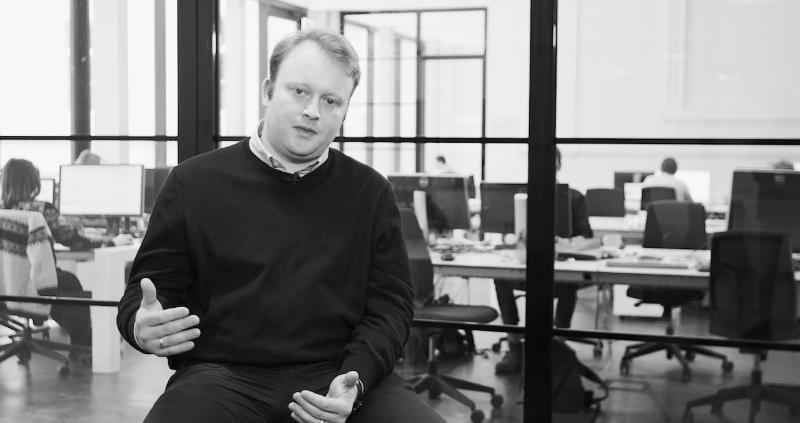
The way business is done today might not be relevant tomorrow. A German construction equipment
vender Kurt König, realised that and saw the potential presented by the digital age. Today most consumers don’t
want to buy heavy, massive power tools every time they do house improvements, while professionals have to
constantly deal with expensive maintenance.
The way business is done today might not be relevant tomorrow. A German construction equipment
vender Kurt König, realised that and saw the potential presented by the digital age. Today most consumers don’t
want to buy heavy, massive power tools every time they do house improvements, while professionals have to
constantly deal with expensive maintenance.
That is where Kurt König came up with a solution, that potentially might reshape the entire
purchasing behaviour of using and acquiring construction tools. Kurt König took a step forward together with
TeleSoftas and at MWC’18 Barcelona will introduce kurts© - the first fully automated 24/7 tool sharing platform in
the world.
kurts© is a service that will allow customers, both building professionals and enthusiasts, to
rent construction equipment on short-term leases from sharing stations throughout Germany. This solution presented
by Kurt König and TeleSoftas combines sharing economy principles and enables users to rent professional tools
without the need of purchasing them.
The user-friendly experience is the key element of the product, thus
TeleSoftas was presented with a challenge of making the app interface ingeniously intuitive and ensuring its
reliability. Operating as a close partner throughout the development if the app, TeleSoftas took the inherent
ownership of the project.
This is the first service of its kind, which makes construction equipment
available to anybody, at any time. kurts© is a truly disruptive move for the home improvement market. The tools
are available to rent at kurts stations 24/7 via users’ smartphones. It also provides an innovative tariff system,
which applies the best rate per hired minute depending on the time used.
The first stations will be
opened in March/April 2018 in Germany; whilst the very first unit will be introduced to the public at the MWC expo
in Barcelona.
Challenging Mental Health Treatment with
VR Inner Child
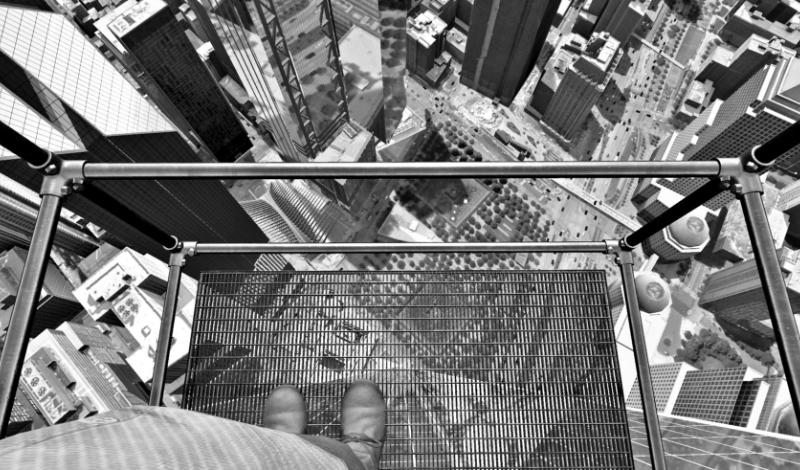
While mental health conversation has been gaining momentum for a while already, instead of
talking, the innovation house TeleSoftas decided to take an active part and challenge the mental health industry
by developing a virtual reality (VR) tool for psychotherapy.
The new VR solution, called VR Inner Child, has been developed in a collaboration with
practicing psychotherapists, combining the knowledge of both worlds: the expertise of VR technology with
traditional psychotherapy techniques. It is meant to challenge the status-quo in mental healthcare and show how VR
technology can be used to advance psychotherapy techniques and mental healthcare in general.
While mental health conversation has been gaining momentum for a while already, instead of
talking, the innovation house TeleSoftas decided to take an active part and challenge the mental health industry
by developing a virtual reality (VR) tool for psychotherapy.
The new VR solution, called VR Inner Child, has been developed in a collaboration with
practicing psychotherapists, combining the knowledge of both worlds: the expertise of VR technology with
traditional psychotherapy techniques. It is meant to challenge the status-quo in mental healthcare and show how VR
technology can be used to advance psychotherapy techniques and mental healthcare in general.
It will be introduced to the public at the world’s largest gathering for the mobile industry - MWC’18, where TeleSoftas will
present a version of the technology, designed specifically to treat acrophobia (the fear of heights). At the expo
the visitors will be able to experience the demo, in which the inner child ushers the would-be patient into a
lift, which rises to a viewing platform at the top of One World Trade Center, New York. On exiting, a cityscape
appears. The VR inner child invites the patient onto a suspended walkway, and requests they process and experience
the scene.
VR Inner Child allows patients to face their fears head-on, without real-life jeopardy. The
patient is put into virtual reality under the therapist’s guidance, where an infant version of our virtual self
interacts and encourages the patient to overcome the fear gradually.
The psychoterapist not only can
monitor the stress levels of the patients via sensors in a wrist-bound tracker and the headset itself; eye
movement, heartbeat, perspiration, and skin temperature are all tracked; they can also track and compare the
results of each session.
When developing this tool, it was chosen to apply the principles and elements of
transactional analysis theory, which focuses on the free inner child ego state. Interacting with our inner child,
we challenge our deeply held beliefs that form in early childhood, before our critical receptors are mature. These
beliefs are retained in our subconscious, and can influence our behaviour in adulthood. Therefore the contact with
an inner child allows patients to address the root causes of their emotional behaviours.
“Our main aim was
to create the environment in VR as realistic as possible in order to eliminate possible distractions, because they
can lead to incorrect measurements and treatment. Therefore we have been consulting with psychologists, actors,
writers, we aimed to create a realistic child’s avatar, built a multidimensional space, induced by elevator
sounds, wind, noise of the town and a realistic recreation of the view of NYC from the top of the WTC.” -
commented Vytautas Kemėšis, the CTO of TeleSoftas and the main lead of the project.
The demo demonstrates
the possibilities of VR – not just in theory but in practice - allowing therapists to create powerful simulations
of scenarios that cause patients psychological discomfort. They can do this from their computers, in their
consulting rooms, and guide patients as they face their fears. VR turns abstract therapies into highly focused,
intensive, and quantitative practices, which deliver results that can be analysed and acted upon.
Bringing the Sharing Economy to Supercomputing with
YellowDog
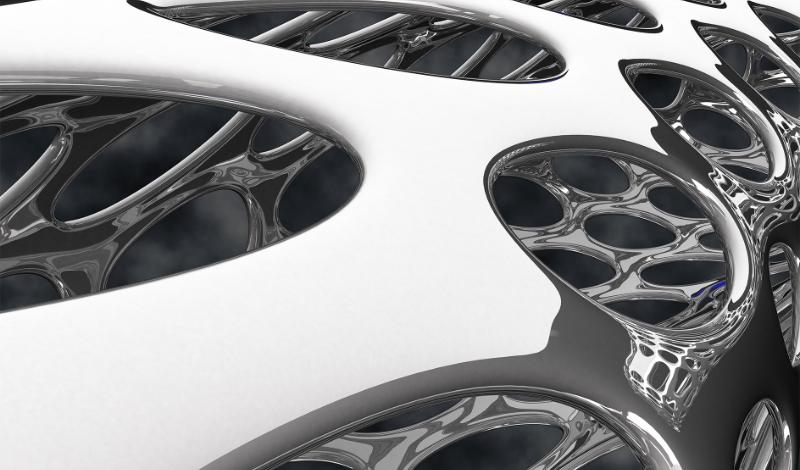
A UK start-up YellowDog was founded on the idea there is enough computing power in the world,
but a large gap between the supply and demand of it. And that even most data-hungry businesses do not require
internal equipment or external contracts to process their workflows quickly and cost effectively, if only they can
gain access to the existing computing power. So the only part missing was to connect one to the other.
A UK start-up YellowDog was founded on the idea there is enough computing power in the world,
but a large gap between the supply and demand of it. And that even most data-hungry businesses do not require
internal equipment or external contracts to process their workflows quickly and cost effectively, if only they can
gain access to the existing computing power. So the only part missing was to connect one to the other.
Here is where YellowDog stepped forward with the help of TeleSoftas and brought the smart
sharing economy to supercomputing. And so the YellowDog Platform that harnesses underutilised computing power and
brings it to various data-hungry industries was created. Today the platform allows its customers in the animation
and visual effects industry to access this virtually unlimited power on demand for rendering computer generated
imagery, safely and quickly.
When building such a groundbreaking solution YellowDog needed a partner that
would ‘live’ the project, from conception to delivery, and through future development. TeleSoftas took the task
with an inherent ownership mentality and built a dedicated team to design and develop the solution from
scratch.
To process thousands of jobs simultaneously and deliver limitless computing power to customers,
TeleSoftas developed a back-end platform, which distributes the load between thousands of cloud and physical
servers. On those servers the YellowDog’s rendering application (also created by TeleSoftas) processes user jobs.
Throughout the process the client is provided with real time data, which is a part of the overall provided
solution. Next to that, TeleSoftas team developed plugins (particularly for 3D modeling software) so that the
platform could support all main render engines.
The result is a best-in-class supercomputer, providing
access to hundreds of thousands of processing engines from across multiple providers. It has also won recognition,
earning awards from Oracle for Disruptive Technology and Excellence in Innovation in 2016, Bristol Life for its
Technology Innovation and the Bristol Post for being Startup of the Year.
The service has so far been
deployed in the visual effects and 3D animation industry, where processes such as CGI rendering require massive
amounts of computing power. However the YellowDog platform has since been developed to also support data-hungry
financial services applications and is aiming to reach further.
Enabling Smart Cities with
Zeetta

Smart cities are already a step forward in providing the infrastructure to give an improved
quality of life to their citizens through a clean and sustainable environment by using "Smart" solutions. But
Zeetta Networks, supported by innovation house TeleSoftas, has come up with a solution to enable smart cities
reach even further, by simplifying the management of the underlying infrastructure and overall operations.
Smart cities are already a step forward in providing the infrastructure to give an improved
quality of life to their citizens through a clean and sustainable environment by using "Smart" solutions. But
Zeetta Networks, supported by innovation house TeleSoftas, has come up with a solution to enable smart cities
reach even further, by simplifying the management of the underlying infrastructure and overall operations.
Zeetta Networks has approached the concept of a modern city, as a collection of
interconnected sub-systems such as energy, transport, water, buildings, etc. which interact with each other as a
network of sub-networks. That is how NetOS® came to be. NetOS® was developed by Zeetta Networks as part of the
European Horizon2020 REPLICATE project, one of the largest smart city projects in Europe. It offers network
operators, a centralised “single-pane of glass” view of their extended physical networks and the ability to
define, on-demand, ‘network slices’ with bespoke network characteristics and full third-party control. A true leap
forward on how Smart Cities are designed, constructed and operated. These latest network technologies can be
programmed in software rather than hardware, and virtualised in the cloud. This makes network building quicker and
cheaper, and viable for smart cities and multi-purpose venues such as college campuses and sports stadia. But the
great promise of this technological innovation is undermined by the challenge of orchestrating all of these
diverse network elements. TeleSoftas has partnered up with the British company to handle the front-end design and
development of Zeetta’s main product NetOS®, including intuitive control functions and visual representations of
city-wide networks for a range of wireless and optical devices. The platform has been deployed by Bristol is Open,
the UK’s leading Smart City deployment and a joint venture between Bristol City Council and the University of
Bristol, which uses the council’s owned fibre network to link nodes around the city to deliver speeds of up to
1Gbps via a combination of Wi-Fi, LTE, and other advanced wireless access technologies. Zeetta Networks has also
deployed the NetOS® solution in Ashton Gate Stadium, home of Bristol FC and Bristol Rugby, enabling unified
control of all IP-connected devices including turnstiles, IPTV systems, and CCTV cameras, as well as over two
hundred Wi-Fi access points around the venue.
Step Forward
In Media
Now it's your turn
Share your business challenge,
We'll give you the tools to meet it.
